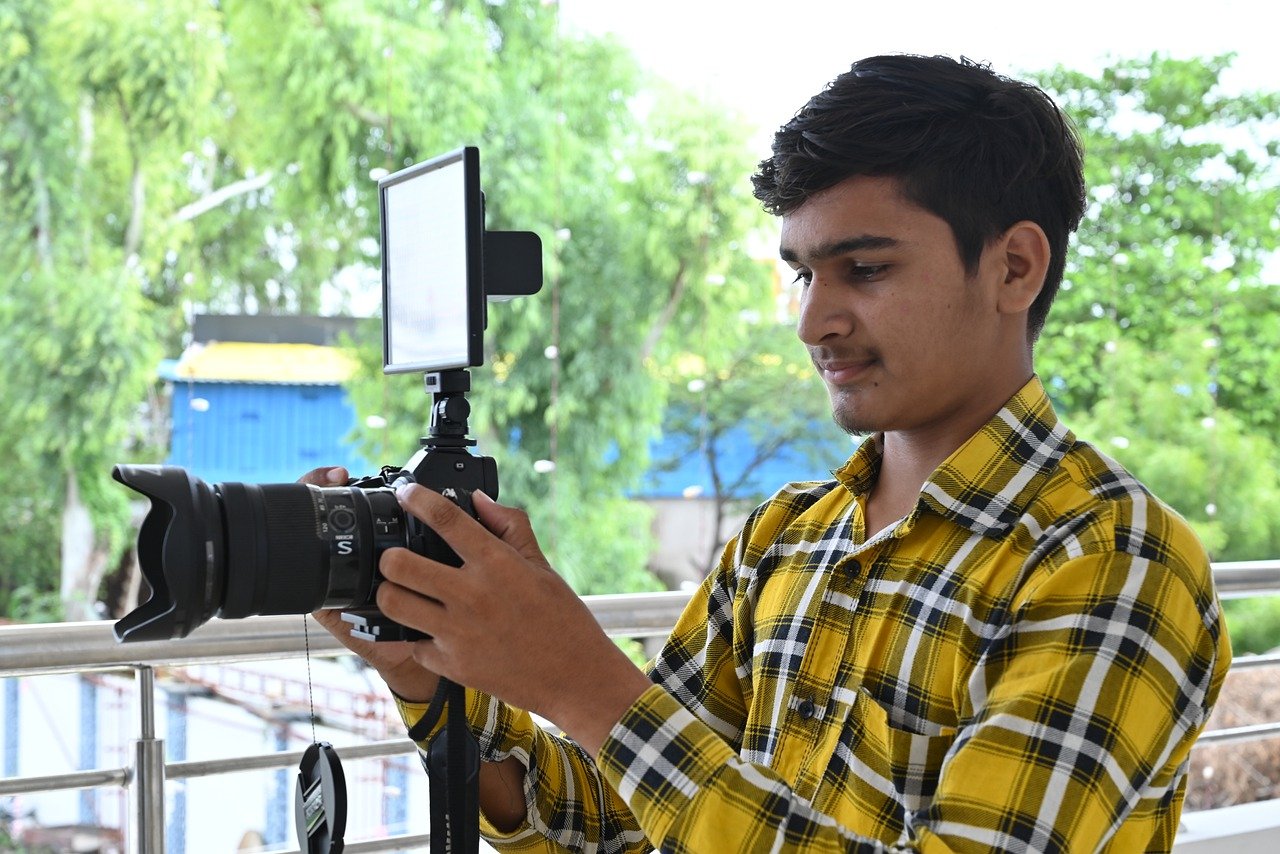The Future of Filmmaking: The Impact of Tech InnovationsThe Future of Filmmaking: The Impact of Tech Innovations
Lights, camera, innovation! The film industry is experiencing a revolution like never before, thanks to cutting-edge technologies such as artificial intelligence and virtual reality. Join us as we explore how these tech innovations are reshaping the way movies are made, viewed, and experienced. Get ready to be transported into a whole new world where creativity meets technology in ways you’ve never imagined.
Virtual Production
 Virtual production is changing the way films are made. It allows filmmakers to create immersive worlds and breathtaking visual effects without ever leaving the studio. Using advanced techniques like LED walls and real-time rendering technology, filmmakers can bring their visions to life in ways that were previously unimaginable. Whether transporting audiences to distant galaxies or recreating historical landmarks, virtual production is revolutionizing the filmmaking process and opening up new creative possibilities for filmmakers.
Virtual production is changing the way films are made. It allows filmmakers to create immersive worlds and breathtaking visual effects without ever leaving the studio. Using advanced techniques like LED walls and real-time rendering technology, filmmakers can bring their visions to life in ways that were previously unimaginable. Whether transporting audiences to distant galaxies or recreating historical landmarks, virtual production is revolutionizing the filmmaking process and opening up new creative possibilities for filmmakers.
If you read the many walle film reviews, you’re likely to see how virtual production is playing a major role in shaping the future of filmmaking, as there are many positive reviews of the film.
CGI and VFX Advancements
Computer-generated imagery (CGI) and visual effects (VFX) have come a long way since their inception, and today’s advancements in technology are taking them to new heights. From lifelike creatures and jaw-dropping action sequences to seamless integration of CGI with live-action footage, the possibilities are endless. With the help of cutting-edge software and powerful computers, filmmakers can create stunning visuals that rival anything seen in big-budget Hollywood blockbusters. Whether it’s enhancing practical effects or creating entirely digital worlds, CGI and VFX are essential tools for modern filmmakers.
AI and Machine Learning
Artificial intelligence (AI) and machine learning are revolutionizing many industries, and the film industry is no exception. Filmmakers are using AI-powered tools for everything from script analysis and casting decisions to editing and post-production. AI algorithms can analyze vast amounts of data to predict box office success, identify trends, and even generate film trailers. Machine learning techniques are also being used to streamline the editing process, making it faster and more efficient than ever before. With AI and machine learning, filmmakers can work smarter, not harder, and focus their energy on the creative aspects of filmmaking.
Remote Collaboration Tools
The COVID-19 pandemic has forced filmmakers to adapt to new ways of working, and remote collaboration tools have become essential for keeping productions on track. From virtual production meetings and remote editing sessions to cloud-based storage solutions, technology is making it possible for filmmakers to collaborate from anywhere in the world. Whether it’s coordinating with a global team of artists and technicians or conducting virtual auditions and rehearsals, remote collaboration tools are keeping the film industry moving forward in the face of unprecedented challenges.
Streaming Platforms and Distribution
 Streaming platforms have transformed the way audiences consume content, and they’re also changing the way films are produced and distributed. With the rise of streaming giants like Netflix, Amazon Prime, and Disney+, filmmakers have more opportunities than ever to get their work seen by a global audience. These platforms are investing billions of dollars in original content, giving filmmakers the creative freedom to explore new ideas and take risks that traditional studios might shy away from.
Streaming platforms have transformed the way audiences consume content, and they’re also changing the way films are produced and distributed. With the rise of streaming giants like Netflix, Amazon Prime, and Disney+, filmmakers have more opportunities than ever to get their work seen by a global audience. These platforms are investing billions of dollars in original content, giving filmmakers the creative freedom to explore new ideas and take risks that traditional studios might shy away from.
With the power of streaming platforms, filmmakers can reach audiences around the world with just the click of a button. In conclusion, technology is playing an increasingly important role in shaping the future of the film industry. From virtual production and CGI advancements to AI-powered tools and remote collaboration platforms, filmmakers have access to an array of innovative technologies that are transforming the way films are made and experienced. As technology continues to evolve, the possibilities for cinematic storytelling are endless.
…
